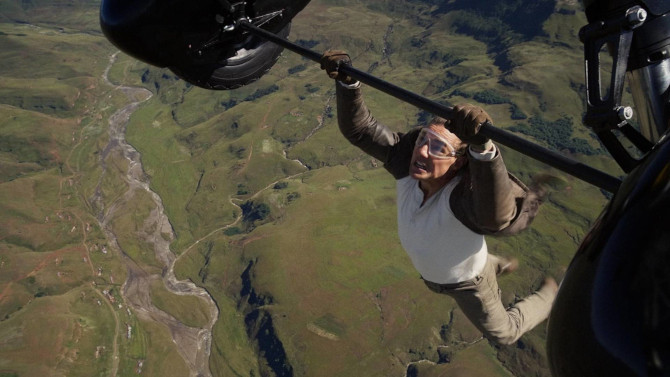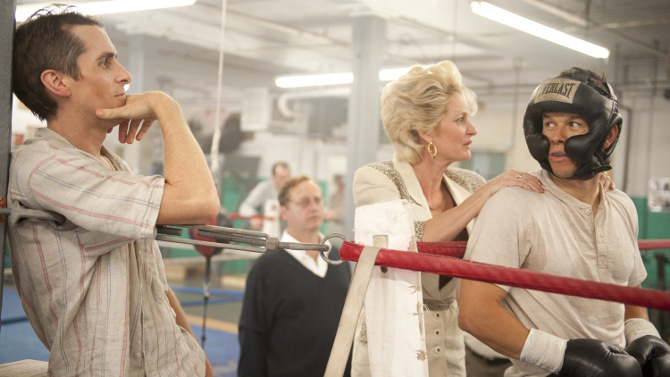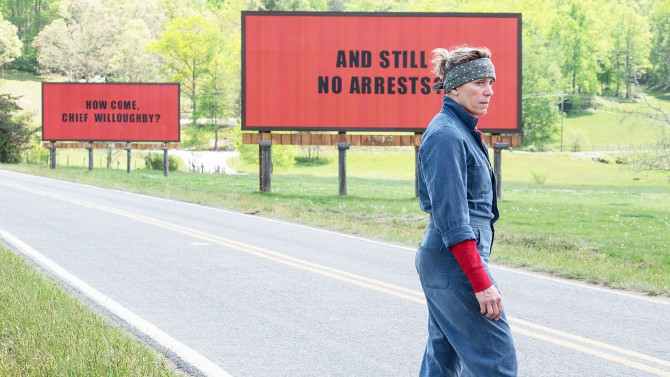
An Impossible Mission
How do you wrap up a franchise like Mission: Impossible? That is, if this even is the final installment... as they’ve made it sound (while at the same time, stars not named ‘Tom Cruise’ pipe up and suggest that might not be so). It has been twenty-nine years, with different writers and visionary directors – from twisty Brian De Palma and the action hair stylings of John Woo, to the lens flares of J.J. Abrams and animation expert Brad Bird, it was only about ten years ago that the franchise decided to opt for The Usual Suspects scribe Christopher McQuarrie for the final four. To return to that opening question once more, you could end with a Sopranos’ style cliffhanger, simply make another entertaining movie like the many before – like Everybody Loves Raymond did it with its final episode, or try to tie everything up in a neat little bow by bringing everything together as the Daniel Craig era did with James Bond. Well, it is definitely more along the lines of the latter example, with some distinct differences.
-

Fighting Irish
The FighterJuly 11, 2018An oft-used motif in the sports genre is the underdog story – Rocky, Rudy, Miracle (about the 1980 U.S. Olympic hockey team), and so many others feed off of the audiences love of cheering for the expected loser (as is the case with the stories these films are often based on). One such feature that follows this well trodden path yet finds some new ground to surprise is David O. Russell’s 2010 feature, The Fighter. Based on real life boxer “Irish” Micky Ward (Mark Wahlberg), the Lowell, Massachusetts native has become a stepping stone for other boxers making their way up towards a title opportunity. Managed by his domineering mother, Alice (Melissa Leo), and trained by his character of a half-brother, Dicky Eklund (Christian Bale) – a former boxer who had potential (going head to head with Sugar Ray Leonard in 1978 – actually knocking the icon down. . . the legend makes a cameo in the film), but has become a crack addict.
-

Playing Games
Game NightJune 15, 2018Well, if for some reason you’ve ever had the random thought that it would be cool seeing a group of board game loving friends wrapped up in a Taken-like kidnapping mystery – unbeknownst to them (for a good portion of it), then 2018's Game Night is for you. To have some fun, I have tried to work as many titles of games into this review as possible. Written by Mark Perez and directed by John Francis Daley (Bones’ Lance Sweets) and Jonathan Goldstein (the pair were part of the writing staff behind Spider-Man: Homecoming), the plot follows a group of weekly game nighters. . . ultra-competitive married couple Max (Jason Bateman) and Annie (Rachel McAdams), long time sweethearts Kevin (Lamorne Morris) and Michelle (Kylie Bunbury), and the oft ridiculed for having a new piece of dim-witted arm candy each week, Ryan (Billy Magnussen – delivering a great comedic performance in which he too is rather dense) – he has finally surprised the gang by bringing a sharp Irish lass named Sarah (Sharon Horgan); each week is a constant battle to discover who will be numero UNO.
-

Bloodlines
HereditaryJune 10, 2018The obituary – the last call, the final farewell, the closing shindig (likely the only remaining time you’ll be the centre of attention), basically a public invite looking for a person’s friends and family to come together for one last time to say goodbye, to tell stories, and to find some solace in closing the book on a man or woman’s story. . . but is it truly the end? Opening with an obituary, first time filmmaker Ari Aster’s Hereditary transports us into a reeling family dynamic, a group that have about as much promise in their lineage as the Usher’s (the Edgar Allan Poe characters, not the hip hop/pop artist). With mental illness coursing through their blood, Annie Graham (Toni Collette) did not exactly have a great relationship with her mother – often estranged, the elderly lady, who lived with dissociative identity disorder, ended her days dealing with dementia, further adding to the enigma that was her highly private life.
-

Dawn of the Deadpool
Deadpool 2May 20, 2018The anticipation was palpable. . . after a bunch of unique trailers (Superman phone booth spoof, deceased PBS artist Bob Ross riff, ‘oh shit, we forget to put the computer generated effects in’, and apologies to David Beckham), Deadpool has finally returned to theatres – one of the most anticipated R-rated sequels in quite some time. And, for the most part, it thrives. This time directed by stunt man turned action maestro David Leitch (John Wick; Atomic Blonde), he reintroduces us to Wade Wilson, aka Deadpool (Ryan Reynolds), the sarcastic, fast-talking quasi hero who cleans up the streets by leaving one dead body after another littering them. Though all is not well, and we soon flash back to learn why our protagonist is so morose – a nice touch, while he sulks, he plays a music box that features Wolverine impaled on a stake. *** Warning, one major and a few minor spoilers in the upcoming paragraphs.***
-

The Sound of Spine-Chilling Silence
A Quiet PlaceApril 20, 2018Baby Driver, Atomic Blonde, Dunkirk. . . three movies over the past year or so that have set a new standard for the way music and sound are used in the context of movies. A Quiet Place continues the recent trend, with its clever use of sound, and the lack thereof, playing an integral role in this very unique horror film. Perhaps the closest thing to a silent movie since Academy Award Best Picture winner The Artist (2011), John Krasinski co-writes and directs this original story. A post-apocalyptic type tale, yet with all the beauty of nature, aliens have invaded the planet, decimating the population and causing fear and chaos to run rampant in the hearts and minds of the secluded populous that is left – the audience is not provided with a glance as to how all this happened, but rather, enters the tale eighty-nine days after first contact.
-

Advertising Gets Results?
Three Billboards Outside Ebbing, MissouriFebruary 20, 2018Good things come in threes – case in point, Martin McDonagh’s Three Billboards Outside Ebbing, Missouri. His third full length feature, it has earned him his first Best Picture nomination at the Academy Awards (expected to be one of the frontrunners this year), while the motion picture has also garnered its three main performers Best Actress/Supporting Actor nods, and, though it may be a tad of a stretch, when eliminating the four above mentioned Oscar nominations, it has also earned three other chances for the elusive statuette (for Original Score – Carter’s Burwell’s composition brimming with mysterious western melancholy; Original Screenplay; and Film Editing). Interestingly, the film could very well have had another title, “Three Letters from a Sheriff in Ebbing, Missouri” – but more on that later. Bringing to life another fascinating dark premise, McDonagh scribes a heart-wrenching tale of how human beings deal with anger, loss, hate, guilt, grief, injustice, and the seemingly cruel fate of life, yet, as always, combined with his sharp wit – a rare movie that, despite its pitch black subject matter, will have you laughing on and off throughout, much like his earlier gems, 2008's In Bruges and 2012's Seven Psychopaths.
